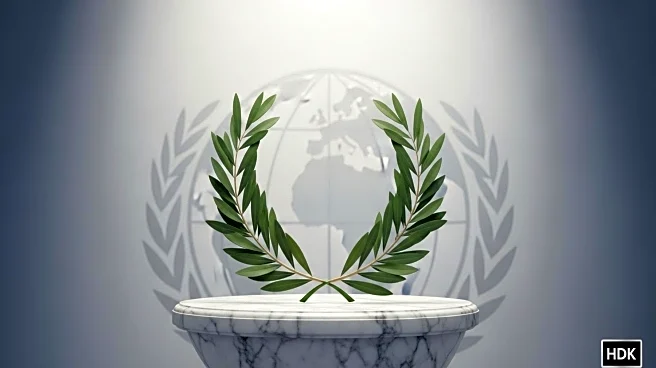What's Happening?
A group of leading nations, including Britain, France, Canada, Australia, and Belgium, have moved to recognize Palestinian statehood. This gesture, occurring during the United Nations General Assembly, serves as a reminder to Israel of international disapproval of its actions in Gaza and potential annexation of the West Bank. The recognition aims to revive efforts towards a two-state solution. The move's impact on Israel and its ally, the United States, remains uncertain, with concerns that President Trump might respond by recognizing Israeli settlements in the West Bank.
Why It's Important?
The recognition of Palestinian statehood by these nations is significant as it reflects growing international pressure on Israel regarding its policies in the occupied territories. This development could influence diplomatic relations and negotiations in the Middle East, potentially affecting peace efforts and regional stability. The move also highlights the international community's role in addressing longstanding conflicts and the complexities of balancing diplomatic relations with both Israel and Palestine.
What's Next?
The international community will be watching for any retaliatory actions from Israel or the United States, which could further complicate peace efforts. The recognition may prompt other countries to take similar steps, potentially altering the diplomatic landscape in the region. Ongoing discussions at the UN and among global leaders will likely continue to focus on finding a viable path towards a two-state solution.









